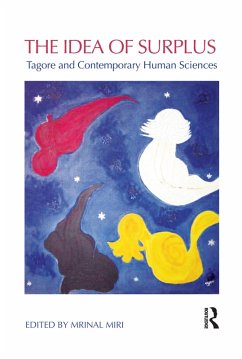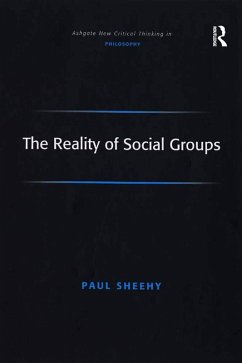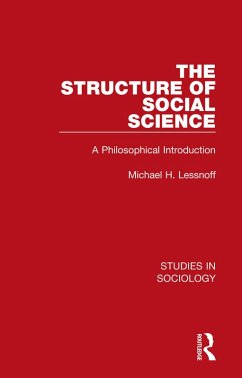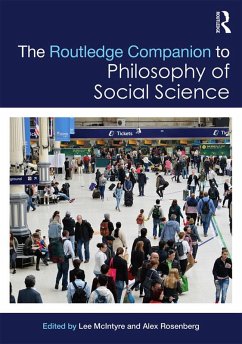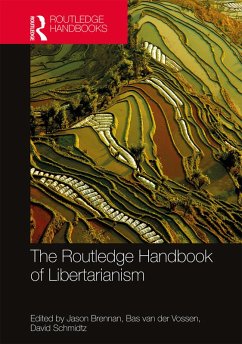Peter Winch
eBook, ePUB
The Idea of a Social Science and Its Relation to Philosophy (eBook, ePUB)

PAYBACK Punkte
8 °P sammeln!





Here Winch addresses the possibility and practice of a comprehensive 'science of society', drawing from the works of such thinkers as Ludwig Wittgenstein, J.S. Mill and Max Weber to make his case.
Dieser Download kann aus rechtlichen Gründen nur mit Rechnungsadresse in A, B, BG, CY, CZ, D, DK, EW, E, FIN, F, GR, HR, H, IRL, I, LT, L, LR, M, NL, PL, P, R, S, SLO, SK ausgeliefert werden.
- Geräte: eReader
- mit Kopierschutz
- eBook Hilfe
- Größe: 0.51MB
Peter Winch (1926-1997). Born in Walthamstow, Essex, Peter Winch was an internationally respected Philosopher and an influential student of Wittgenstein. The Idea of a Social Science and its Relation to Philosophy is his most famous work.
Produktbeschreibung
- Verlag: Taylor & Francis eBooks
- Seitenzahl: 192
- Erscheinungstermin: 21. Mai 2015
- Englisch
- ISBN-13: 9781136752506
- Artikelnr.: 38442566
Für dieses Produkt wurde noch keine Bewertung abgegeben. Wir würden uns sehr freuen, wenn du die erste Bewertung schreibst!
Eine Bewertung schreiben
Eine Bewertung schreiben
Andere Kunden interessierten sich für




